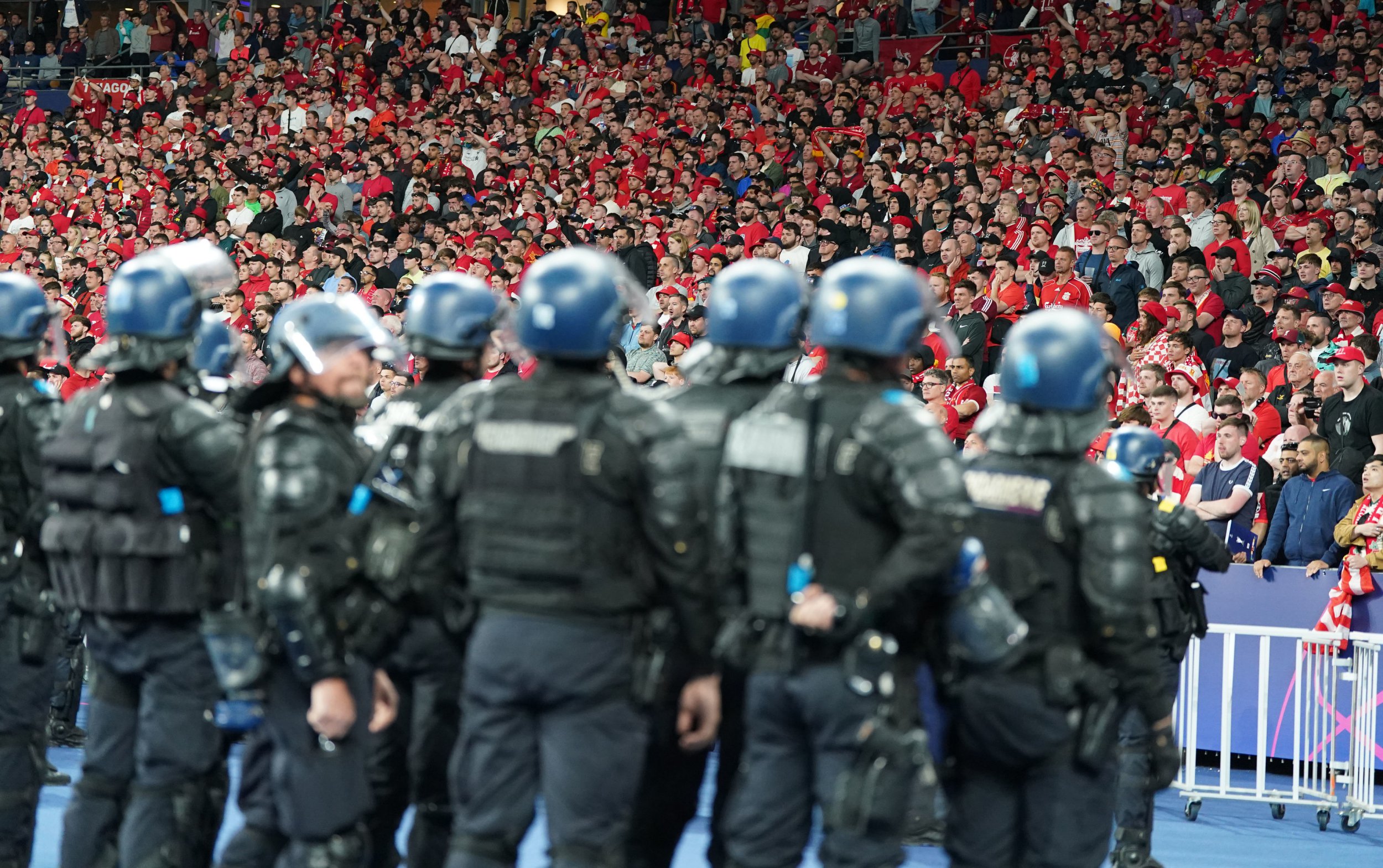
Julia Vigas, the wife of Liverpool midfielder Thiago Alcantara, has explained the ‘total nightmare’ she experienced during the final on Saturday night, saying there were ‘so many scary moments’ in Paris.
Many Liverpool fans have reported an abysmal experience in the French capital, being kept out of the Stade de France for hours before the match and being treated incredibly aggressively by police.
The French police were then conspicuous by their absence after the game when many fans were victims of attacks by gangs of locals.
The Reds were beaten 1-0 by Real Madrid in the biggest game in European football, but it was the scenes outside the ground which were the cause of headlines in Paris.
Vigas gave her own account which was similar to many Liverpool fans who went through a terrible experience and called for a reaction to the dreadful scenes before and after the game.
She posted on Instagram: ‘I don’t like to comment on these things but this time I need to express myself. Yesterday’s final was a total nightmare, and this is not about football, it goes far beyond the result.
‘Due to a lack of organisation and security, there were so many scary moments. Constantly being threatened by bands of robbers, that were trying to assault us and slipped onto the stadium without a ticket.
‘For that many supporters were left out of the game triggering avalanches of people.

‘Tear gas was thrown by the police at families and supporters, and some of them also were beaten down. All of them innocent people. Because [of] all this trouble, we had to leave the stadium escorted for our own safety.
‘Something has to be done, these kind of things cannot happen in any kind of event and we ask for responsibility. It could have been much worse.’
, .
, and .
























